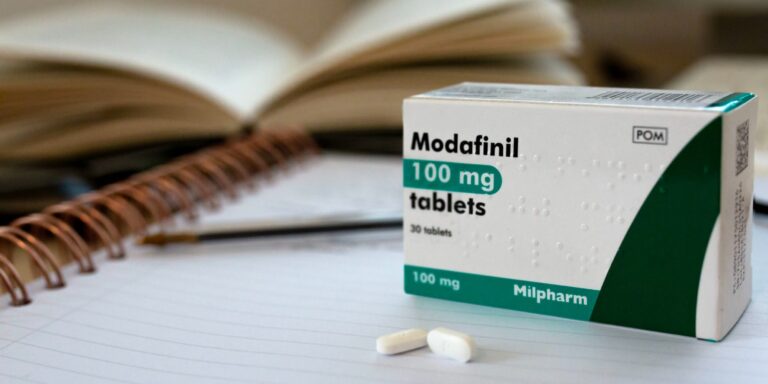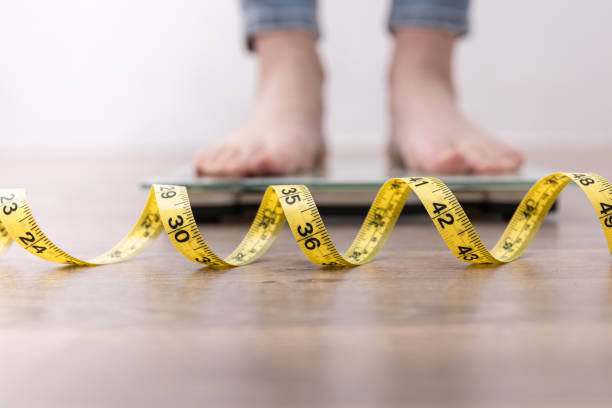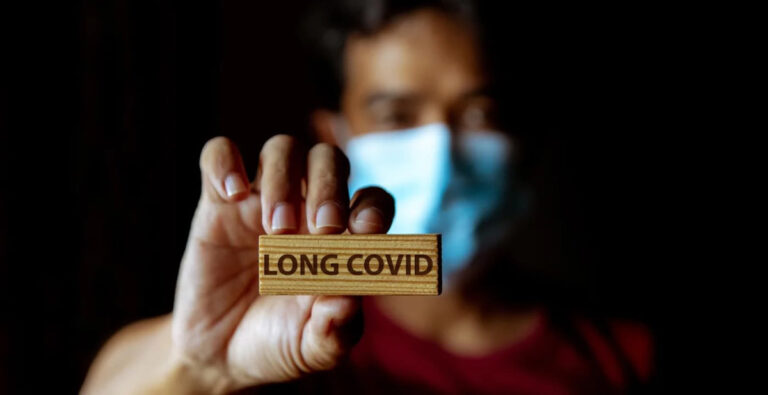Modafinil Withdrawal: What To Expect and How To Stop Safely
Modafinil promotes wakefulness by modestly increasing dopamine signaling and engaging the orexin and histamine systems that keep you alert. When you stop, these pathways readjust. Most people do not face dangerous withdrawal, yet some notice fatigue, sleepiness, low mood, and brain fog for a short period. Rare cases of dependence have been reported, usually with very high or prolonged use (Volkow et al., 2009; Ishizuka et al., 2010; Krishnan & Chary, 2015).
Medical disclaimer: This information is educational. Talk with your clinician before changing any prescription.
Why Can Modafinil Withdrawal Happen?
Modafinil blocks the dopamine transporter, raising extracellular dopamine in regions tied to motivation and reward. It also engages orexin neurons that activate histamine release, which supports wakefulness. When you stop the drug, these systems rebalance, which can feel like a dip in energy and focus (Volkow et al., 2009; Ishizuka et al., 2010).
Is Modafinil Withdrawal Dangerous?
Serious medical danger is unlikely. In randomized trials, stopping modafinil led to a return of daytime sleepiness to baseline in narcolepsy without signs of stimulant-type withdrawal. Long-term studies also found good tolerability with no evidence of tolerance in typical dosing ranges (US Modafinil Study Group, 2000; Mitler et al., 2000).
That said, modafinil is a Schedule IV controlled substance. Labeling highlights abuse and dependence potential, psychiatric warnings, and rare severe rashes. Use under medical guidance, especially if you have heart disease or a history of mood or psychotic disorders (U.S. Food and Drug Administration, 2015; StatPearls, 2023).
Rare dependence has been reported in case literature, often with very high daily doses or non-prescribed use (Krishnan & Chary, 2015).
Common Symptoms People Report
Not everyone has symptoms. When present, they are usually mild to moderate and short lived.
- Fatigue and increased sleepiness
- Headache and brain fog
- Low mood, irritability, or anxiety
- Reduced motivation and slower thinking
- Sleep pattern changes, including rebound sleepiness as your schedule resets
Sleep architecture is closely tied to stimulant use. Studies in stimulant users show that sleep quality often normalizes over several weeks, which helps daytime function recover (Morgan et al., 2010; Moosavi et al., 2019). Duration varies by dose, duration of use, sleep habits, and other substances.
Factors That Affect Symptom Severity
- Dose and duration: Higher or longer use can mean a more noticeable dip when stopping (StatPearls, 2023).
- Sleep debt: Chronic short sleep can magnify rebound sleepiness (Morgan et al., 2010).
- Other stimulants: Caffeine, nicotine, and amphetamine use can interact with how you feel after stopping (Moosavi et al., 2019).
- Mental health: Anxiety or depression can amplify perceived symptoms. Seek support if mood worsens (StatPearls, 2023).
How To Stop Safely
Talk to your prescriber first, especially if you take other medicines or have heart or mental health conditions. The FDA label includes important safety and interaction information, including effects on hormonal contraceptives and CYP-mediated drug interactions (U.S. Food and Drug Administration, 2015).
Consider a gentle taper
A short, stepwise reduction often feels smoother than an abrupt stop, especially after long-term daily use. One example is reducing the daily dose by about 25 percent each week until off. This is not a one-size plan. Your clinician can personalize the steps and pace (StatPearls, 2023).
Prioritize sleep
- Keep a consistent bedtime and wake time.
- Limit late caffeine and screens.
- Short daytime naps can help during the first week, kept under 30 minutes.
Sleep measures improved over weeks in stimulant users as the brain’s sleep pressure normalized, which aligns with patient reports during modafinil discontinuation (Morgan et al., 2010).
Support cognition, mood, and energy
- Hydrate and eat balanced meals with protein and fiber.
- Light to moderate exercise most days improves energy and mood.
- Short focus blocks with breaks can bridge dips in attention.
- Mindfulness or breathing exercises reduce stress and irritability (StatPearls, 2023).
Natural Options With Evidence
These are adjuncts, not replacements for medical guidance.
- L-theanine plus caffeine: Improves attention and reaction time, and may reduce mind-wandering. Typical study doses were about 200 mg L-theanine with 160 mg caffeine. Start lower if you are sensitive to caffeine (Sohail et al., 2021).
- Ashwagandha (Withania somnifera): In randomized trials, reduced anxiety and cortisol in stressed adults. Look for standardized extracts and discuss with your clinician if you have thyroid disease or take sedatives (Lopresti et al., 2019).
- Other candidates: Reviews note potential roles for Rhodiola rosea and Lion’s Mane for mental fatigue and cognition, though evidence quality varies. Use reputable products and monitor effects (Lewis et al., 2021).
When To Seek Medical Help
- Persistent or severe depression, anxiety, or insomnia
- Thoughts of self-harm or significant functional impairment
- Worsening heart symptoms, chest pain, or concerning blood pressure changes
- Rash, mouth sores, fever, or swelling that could indicate hypersensitivity
These can relate to underlying conditions or to medication effects and need prompt evaluation (U.S. Food and Drug Administration, 2015; StatPearls, 2023).
What The Evidence Says at a Glance
- Modafinil increases dopamine by inhibiting the transporter and engages orexin and histamine pathways that promote wakefulness (Volkow et al., 2009; Ishizuka et al., 2010).
- Randomized trials found no classic stimulant-type withdrawal on discontinuation during short-term treatment, with sleepiness returning to baseline in narcolepsy (US Modafinil Study Group, 2000; Mitler et al., 2000).
- Rare dependence has been reported, typically with high-dose, long-duration, or non-prescribed use (Krishnan & Chary, 2015).
- Sleep normalizes over weeks when stimulant exposure ends, which parallels patient reports after stopping modafinil (Morgan et al., 2010; Moosavi et al., 2019).
- L-theanine with caffeine and Ashwagandha have human data for attention and stress support during adjustment periods (Sohail et al., 2021; Lopresti et al., 2019; Lewis et al., 2021).
FAQs
Can I experience withdrawal after only a few weeks of use?
Many short-term users do not report withdrawal. Some notice fatigue or brain fog for a few days as sleep debt catches up. Trials did not show stimulant-type withdrawal after several weeks of use, but experiences vary (US Modafinil Study Group, 2000; StatPearls, 2023).
How long do symptoms usually last?
Most adjustment symptoms fade as sleep regularizes, often within one to a few weeks. Keep a regular sleep schedule and follow a gradual taper when appropriate (Morgan et al., 2010; StatPearls, 2023).
Is occasional use likely to cause withdrawal?
Occasional use, such as once weekly, is less likely to cause symptoms. Risks rise with daily high doses and long duration. Use only under medical guidance (U.S. Food and Drug Administration, 2015; Krishnan & Chary, 2015).
What safety issues should I know about when stopping or restarting?
Review drug interactions, psychiatric cautions, cardiovascular cautions, and contraceptive interactions. Report any rash or mood changes. Follow label guidance and your clinician’s plan (U.S. Food and Drug Administration, 2015; StatPearls, 2023).
References
- U.S. Food and Drug Administration. (2015). PROVIGIL® (modafinil) tablets, for oral use, C-IV [Prescribing information]. U.S. Department of Health and Human Services. https://www.accessdata.fda.gov/drugsatfda_docs/label/2015/020717s037s038lbl.pdf
- Greenblatt, K., & Adams, N. (2023, February 6). Modafinil. In StatPearls [Internet]. StatPearls Publishing. https://www.ncbi.nlm.nih.gov/books/NBK531476/
- Volkow, N. D., Fowler, J. S., Logan, J., Alexoff, D., Zhu, W., Telang, F., Wang, G. J., Jayne, M., Hooker, J. M., Wong, C., Hubbard, B., Carter, P., Warner, D., King, P., Shea, C., Xu, Y., Muench, L., & Apelskog-Torres, K. (2009). Effects of modafinil on dopamine and dopamine transporters in the male human brain: Clinical implications. JAMA, 301(11), 1148–1154. https://doi.org/10.1001/jama.2009.351
- Ishizuka, T., Murotani, T., & Yamatodani, A. (2010). Modafinil activates the histaminergic system through the orexinergic neurons. Neuroscience Letters, 483(3), 193–196. https://doi.org/10.1016/j.neulet.2010.08.005
- Krishnan, R., & Chary, K. V. (2015). A rare case of modafinil dependence. Journal of Pharmacology and Pharmacotherapeutics, 6(1), 49–50. https://doi.org/10.4103/0976-500X.149149
- Mitler, M. M., Harsh, J., Hirshkowitz, M., & Guilleminault, C. (2000). Long-term efficacy and safety of modafinil (PROVIGIL®) for the treatment of excessive daytime sleepiness associated with narcolepsy. Sleep Medicine, 1(3), 231–243. https://doi.org/10.1016/S1389-9457(00)00031-9
- Randomized trial of modafinil as a treatment for the excessive daytime somnolence of narcolepsy: US Modafinil in Narcolepsy Multicenter Study Group. (2000). Neurology, 54(5), 1166–1175. https://doi.org/10.1212/WNL.54.5.1166
- Moosavi, S. M., Yazdani-Charati, J., & Amini, F. (2019). Effects of modafinil on sleep pattern during methamphetamine withdrawal: A double-blind randomized controlled trial. Addiction & Health, 11(3), 165–172. https://doi.org/10.22122/ahj.v11i3.219
- Morgan, P. T., Pace-Schott, E., Pittman, B., Stickgold, R., & Malison, R. T. (2010). Normalizing effects of modafinil on sleep in chronic cocaine users. American Journal of Psychiatry, 167(3), 331–340. https://doi.org/10.1176/appi.ajp.2009.09050613
- Dias, V. T., Rosa, H. Z., D’Avila, L. F., Vey, L. T., Barcelos, R. C. S., & Burger, M. E. (2019). Modafinil reduces amphetamine preference and prevents anxiety-like symptoms during drug withdrawal in young rats: Involvement of dopaminergic targets in VTA and striatum. Progress in Neuro-Psychopharmacology and Biological Psychiatry, 92, 199–206. https://doi.org/10.1016/j.pnpbp.2019.01.007
- Lewis, J. E., Poles, J., Shaw, D. P., Karhu, E., Khan, S. A., Lyons, A. E., Sacco, S. B., & McDaniel, H. R. (2021). The effects of twenty-one nutrients and phytonutrients on cognitive function: A narrative review. Journal of Clinical and Translational Research, 7(4), 575–620. https://www.ncbi.nlm.nih.gov/pmc/articles/PMC8445631/
- Lopresti, A. L., Smith, S. J., Malvi, H., & Kodgule, R. (2019). An investigation into the stress-relieving and pharmacological actions of an ashwagandha (Withania somnifera) extract: A randomized, double-blind, placebo-controlled study. Medicine, 98(37), e17186. https://doi.org/10.1097/MD.0000000000017186
- Sohail, A. A., Ortiz, F., Varghese, T., Fabara, S. P., Batth, A. S., Sandesara, D. P., Sabir, A., Khurana, M., Datta, S., & Patel, U. K. (2021). The cognitive-enhancing outcomes of caffeine and L-theanine: A systematic review. Cureus, 13(12), e20828. https://doi.org/10.7759/cureus.20828








